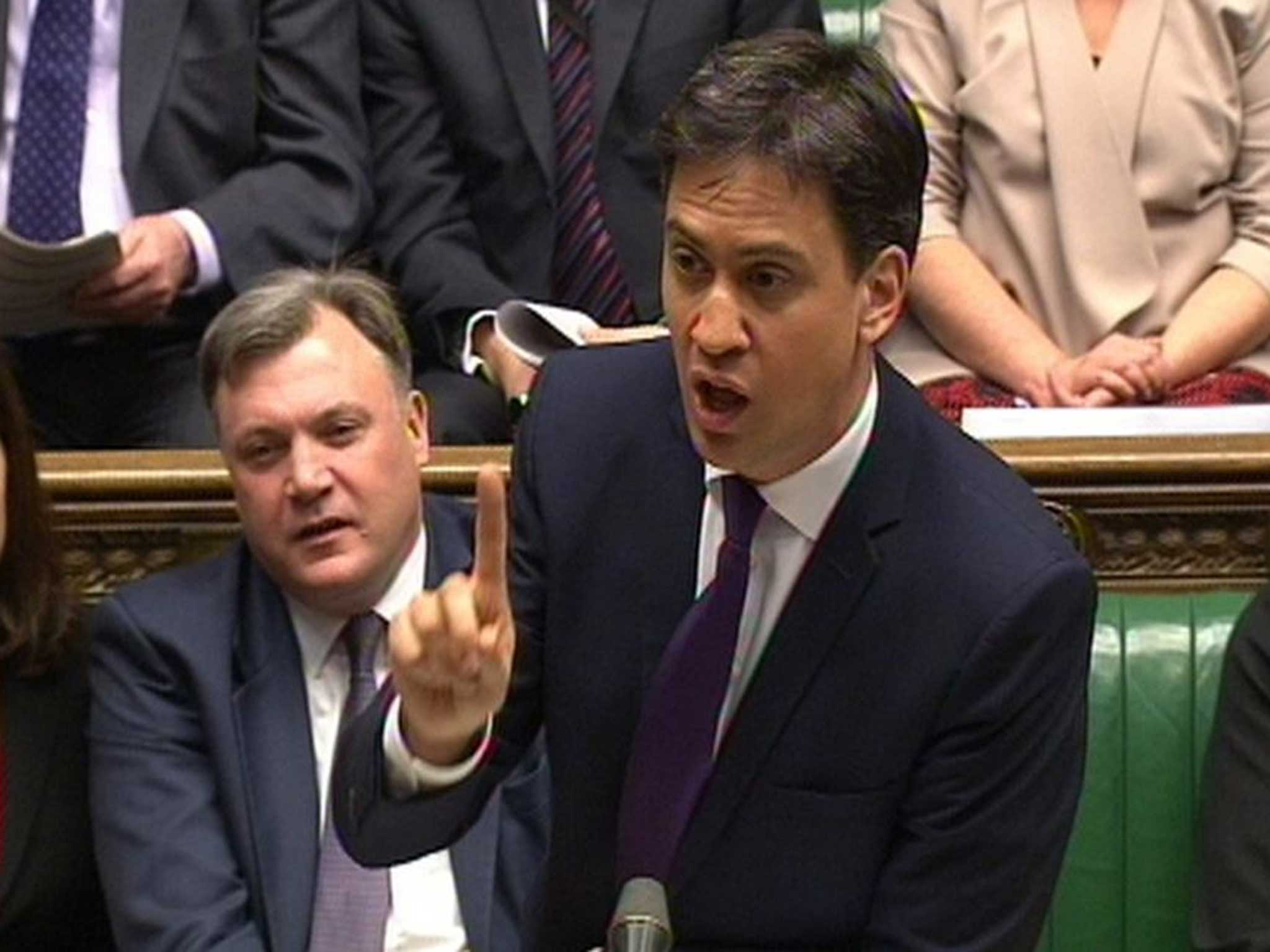Not just MPs, where are the women in Government? New figures show that fewer than one in five holders of key posts are female
Labour leader Ed Miliband accused David Cameron last week of 'failing' women in politics

Your support helps us to tell the story
From reproductive rights to climate change to Big Tech, The Independent is on the ground when the story is developing. Whether it's investigating the financials of Elon Musk's pro-Trump PAC or producing our latest documentary, 'The A Word', which shines a light on the American women fighting for reproductive rights, we know how important it is to parse out the facts from the messaging.
At such a critical moment in US history, we need reporters on the ground. Your donation allows us to keep sending journalists to speak to both sides of the story.
The Independent is trusted by Americans across the entire political spectrum. And unlike many other quality news outlets, we choose not to lock Americans out of our reporting and analysis with paywalls. We believe quality journalism should be available to everyone, paid for by those who can afford it.
Your support makes all the difference.The full scale of the under-representation of women in the government is revealed today, with figures showing that fewer than one in five holders of some of the key posts in government are female.
Ed Miliband accused David Cameron at Prime Minister’s Questions last week of “failing” women in politics, with a series of female Conservative MPs standing down and missing his own target of ensuring a third of government ministers are women.
But new figures show how the problem of under-representation in the government goes further: just 14 per cent of 114 Privy Councillors appointed since 2010 were women, while 14 per cent of the seats on Cabinet committees, who oversee the business of government, are held by women. Six Cabinet committees have no female presence, including the Coalition committee, while the Economic Affairs Committee, one of the most important in government, has just one woman. None of the 26 Cabinet committees have female chairmen or deputy chairmen.
Of the 85 policy “tsars” created by Mr Cameron since 2010, 13 are women, or 15 per cent. Less than 20 per cent of ambassadors appointed to represent the government since the coalition was formed in 2010 have been women, while only 25 per cent of permanent secretaries are female.
Mr Miliband, in his attack on Wednesday, said Mr Cameron was running the government “like an old boys network”. There are only four women ministers in the Cabinet, while five of the 48 female Conservative MPs elected in 2010 have either left, are standing down or have been deselected. However seven female Labour MPs are standing down at the next election – although they have served in Parliament for longer.
Last year Mr Cameron admitted that he needed to do more in getting women into government posts, adding: “My wife likes to say that if you don’t have women in the top places, you are not just missing out on 50 per cent of the talent, you are missing out on a lot more than 50 per cent of the talent - and I think she probably has a point.
“We still have a long way to go. If you look at the top businesses in Britain, there still aren’t nearly enough women in the boardroom. If you look at politics in Britain, there aren’t nearly enough women around the Cabinet table.
Gloria De Piero, Labour’s shadow minister for women and equalities, said last night: “It’s no wonder people feel the government doesn’t understand their everyday struggles when half the population is so significantly under-represented in the Coalition. David Cameron and Nick Clegg cannot claim their parties speak for Britain when they routinely ignore so many women in their own ranks.
“From Conservative selections to the Cabinet committees that make the key decisions, women are being shut out. Meanwhile, women are feeling the effects of all this - with the gender pay gap rising and the high cost of childcare meaning that for many women things have never been so tough for them and their families. Labour is the only party committed to making politics look and sound like the country we seek to serve.”
Yesterday Ed Balls, the shadow Chancellor, pledged that if Labour win the election he would appoint a woman to the Bank of England’s monetary policy committee, which has had no female representation since 2010.
The figures collated by the Labour party show that 15 of the 62 Conservative peers created since 2010 have been women, while 18 of the 65 candidates selected by the Tories for the 2015 election are female.
A Tory spokesman said: “We are committed to increasing female representation in the public sector and all walks of life ”
Join our commenting forum
Join thought-provoking conversations, follow other Independent readers and see their replies
Comments